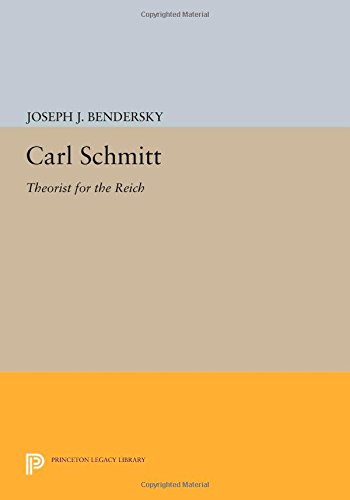
Neo-fascism is a post–World War II ideology that includes significant elements of fascism. Neo-fascism usually includes ultranationalism, populism, anti-immigration policies or, where relevant, nativism, anti-communism, anti-socialism, anti-Marxism, anti-anarchism and opposition to the parliamentary system and liberal democracy.
The alt-right, or alternative right, is a loosely defined group of people with far-right ideologies who reject mainstream conservatism in favor of white nationalism. White supremacist Richard Spencer initially promoted the term in 2010 in reference to a movement centered on white nationalism, and did so according to the Associated Press to disguise overt racism, white supremacism, and neo-Nazism. The term drew considerable media attention and controversy during and after the 2016 US presidential election.
Alt-right beliefs have been described as isolationist, protectionist, antisemitic, and white supremacist, frequently overlapping with Neo-Nazism, nativism and Islamophobia, antifeminism, misogyny, and homophobia, right-wing populism,and the neoreactionary movement.
 Carl Schmitt - Theorist for the Reich
by
Basing his work on the writings of Schmitt and his contemporaries, extensive new archival documentation, and parts of Schmitt's personal papers, Professor Bendersky uses Schmitt's public career as a framework for re-evaluating his contributions to political and legal theory. This book establishes that Schmitt's late Weimar writings were directed at preventing rather than encouraging the Nazi acquisition of power. Originally published in 1983. The Princeton Legacy Library uses the latest print-on-demand technology to again make available previously out-of-print books from the distinguished backlist of Princeton University Press. These paperback editions preserve the original texts of these important books while presenting them in durable paperback editions. The goal of the Princeton Legacy Library is to vastly increase access to the rich scholarly heritage found in the thousands of books published by Princeton University Press since its founding in 1905.
Carl Schmitt - Theorist for the Reich
by
Basing his work on the writings of Schmitt and his contemporaries, extensive new archival documentation, and parts of Schmitt's personal papers, Professor Bendersky uses Schmitt's public career as a framework for re-evaluating his contributions to political and legal theory. This book establishes that Schmitt's late Weimar writings were directed at preventing rather than encouraging the Nazi acquisition of power. Originally published in 1983. The Princeton Legacy Library uses the latest print-on-demand technology to again make available previously out-of-print books from the distinguished backlist of Princeton University Press. These paperback editions preserve the original texts of these important books while presenting them in durable paperback editions. The goal of the Princeton Legacy Library is to vastly increase access to the rich scholarly heritage found in the thousands of books published by Princeton University Press since its founding in 1905.
John Caldwell Calhoun was an American statesman and political theorist from South Carolina, and the seventh Vice President of the United States from 1825 to 1832. He is remembered for strongly defending slavery and for advancing the concept of minority rights in politics, which he did in the context of defending white Southern interests from perceived Northern threats. He began his political career as a nationalist, modernizer, and proponent of a strong national government and protective tariffs. By the late 1820s, his views reversed and he became a leading proponent of states' rights, limited government, nullification, and opposition to high tariffs—he saw Northern acceptance of these policies as the only way to keep the South in the Union. His beliefs and warnings heavily influenced the South's secession from the Union in 1860–1861.
Carl Schmitt was a German jurist and political theorist. Schmitt wrote extensively about the effective wielding of political power. His work has been a major influence on subsequent political theory, legal theory, continental philosophy and political theology. Much of his work remains both influential and controversial presently due to his association with Nazism, for which he is known as the "crown jurist of the Third Reich".
Samuel Todd Francis (April 29, 1947 – February 15, 2005), known as Sam Francis, was an American writer and syndicated columnist in the United States. A paleoconservative, Francis was a columnist and editor for the conservative Washington Times, but was fired from the newspaper after making racist remarks at the 1995 conference of the American Renaissance. Francis would later become a "dominant force" on the Council of Conservative Citizens, an anti-black, anti-immigrant group that espoused racism. Scholar George Michael, an expert on extremism, identified Francis as one of "the far right's higher-caliber intellectuals".The Southern Poverty Law Center, which tracks extremist groups, described Francis as an important white nationalist writer known for his "ubiquitous presence of his columns in racist forums and his influence over the general direction of right-wing extremism" in the United States. Analyst Leonard Zeskind called Francis the "philosopher king" of the radical right. Scholar Chip Berlet described Francis as an ultraconservative ideologue akin to Patrick Buchanan. Hans-Hermann Hoppe called Francis "one of the leading theoreticians and strategists of the Buchananite movement".
 Shots Fired
by
Shots Fired
by
Patrick Joseph Buchanan is an American conservative political commentator, author, syndicated columnist, politician and broadcaster. Buchanan was a senior advisor to U.S. Presidents Richard Nixon, Gerald Ford and Ronald Reagan. He sought the Republican presidential nomination in 1992 and 1996.
He co-founded The American Conservative magazine and launched a foundation named The American Cause. His political positions can generally be described as paleoconservative, and many of his views, particularly his opposition to American imperialism and the managerial state, echo those of the Old Right Republicans of the first half of the 20th century.